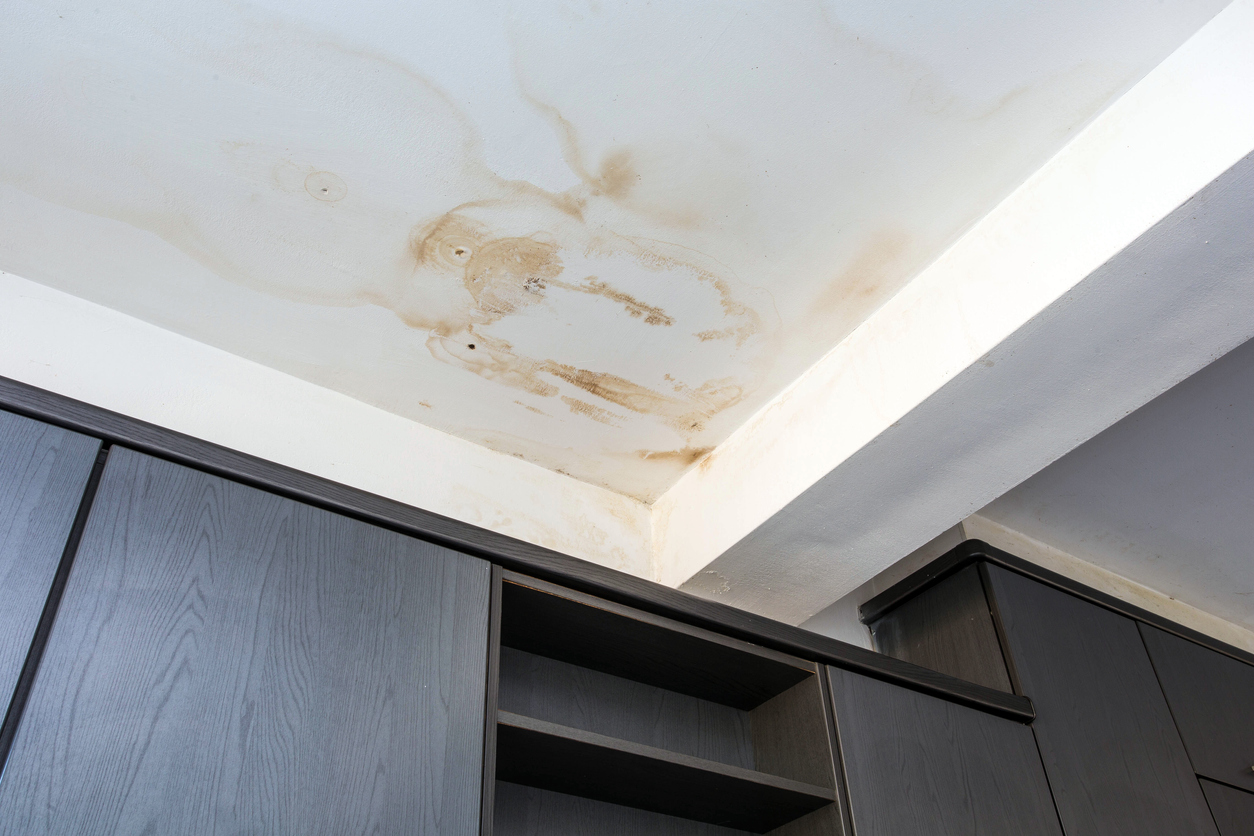Severe maladministration finding for Metropolitan after failings with new home owner
25 January 2022
The Housing Ombudsman found severe maladministration for Metropolitan Thames Valley’s failures in dealing with a resident’s leaking roof and damaged ceilings.

Multiple failings by Metropolitan Thames Valley in dealing with a resident’s leaking roof and damaged ceilings led to the condition worsening and water coming into almost every room in the new build property. The Housing Ombudsman found severe maladministration for the landlord’s failure to deal with the repairs within a reasonable amount of time.
The resident first reported wet patches forming on some ceilings at the end of 2018 and then chased it on several occasions over the next seven months during which time the condition worsened including water coming through the bathroom light. Contrary to its repair policy, the landlord provided no indication that the resident’s repair need was being taken seriously until he submitted a complaint in late 2019.
As it was a new build property still under guarantee the landlord decided to sort the repairs through the National House Building Council (NHBC) and the original developers. The landlord still had a responsibility to support the resident, manage the resident’s expectations and to ensure that the works were arranged promptly and completed within a reasonable length of time.
The landlord was slow in arranging its inspections, the appropriate tests needed to begin works and in undertaking remedial works. Despite continued reports of worsening conditions, it failed to provide a temporary fix and reassure the resident that it was making every effort to find a solution.
The landlord also failed to act in line with its complaints policy. It delayed in providing its response and only offered one stage meaning the resident had no opportunity to challenge the response.
The landlord offered compensation for its initial mismanagement of the resident’s complaint, but we found this was insufficient in recognising the extent of its failure to act in accordance with its repair policy, its failure to provide an interim solution, its poor management of his expectations and the level of inconvenience and distress which would have been experienced.
Richard Blakeway, Housing Ombudsman, said: “Given the resident’s distress in this situation, the landlord should have maintained communication with him throughout, but failed to do so. It resulted in the resident spending a significant amount of time chasing the landlord for updates and clarity on the next steps and the likely timeline for repair.
“As well as failing to manage the resident’s situation and expectations, there was also a clear record keeping issue. Landlords should appropriately record and retain all notes and reports about a resident’s repair to enable the smooth progression of matters and access by all permitted parties. The landlord failed to do this.
“And while we expect landlords to offer compensation where suitable, in this case greater priority should have been given to putting things right.
“I welcome the opportunity the landlord has taken to learn lessons from this complaint and its actions to improve and prevent similar issues recurring. I would encourage other landlords to consider the learning this case offers.”
Our investigation found there was severe maladministration in the landlord’s handling of the reports of a roof leak and maladministration in handling the complaint. We ordered the landlord to pay compensation totalling £2,150 and recommended that the landlord review the failures identified in the case.
In cases of severe maladministration, we invite the landlord to provide a short statement on the lessons it has learned following the decision.
Comment from Metropolitan:
MTVH acknowledges that our service to the leaseholder in this instance fell well below our usual standards. Our initial response to a leak on this recent development was to engage our repairs contractor rather than to pursue the matter as a latent defect with the developer. Our error in mis-assigning the work in the first place stemmed from not having warranty information available to our front line teams. Our error caused delay for the leaseholder and made it more difficult for MTVH to correctly assign ownership to get the matter resolved. It is also clear that throughout, our record of proactively providing customers with up to date information was not good. Although the developer has now accepted responsibility for the defect, the leaseholder has had a poor experience throughout.
MTVH has made some important changes based on learning from this case. Firstly, each of our regional teams now has a specialist complex repairs team who triage and case manage complex matters. In future, cases like this will be dealt with by this team. Secondly, suspected latent defects are now subject to monthly review by our Property and Development leads where early determinations are made about whether to pursue developers or not. Thirdly, we are introducing a standard communication plan for each complex case in order to provide consistent quality and frequency of feedback to the customers affected by ongoing works and investigations.
We are grateful to the Housing Ombudsman service for the opportunity to identify how MTVH has responded to this determination.
